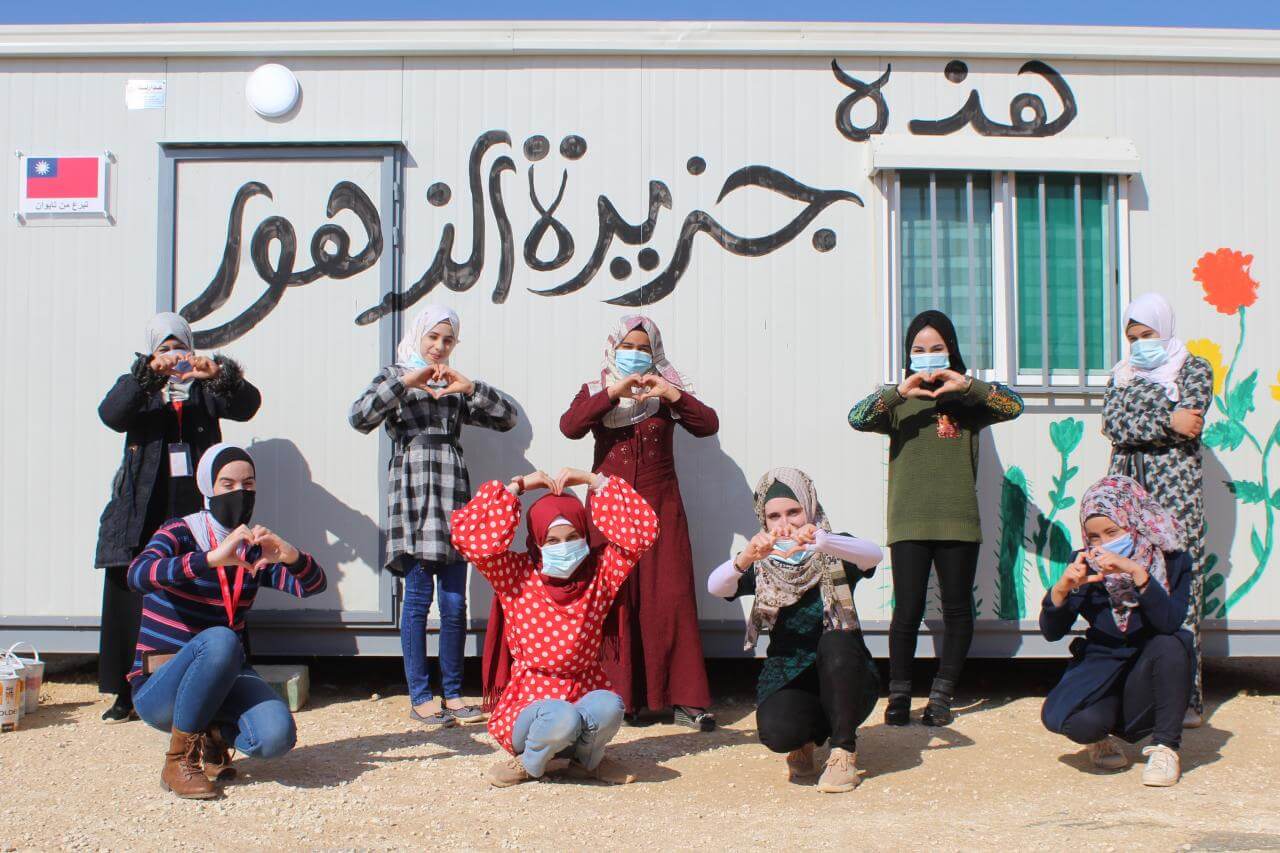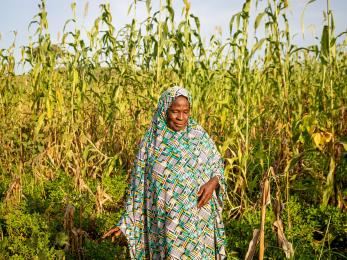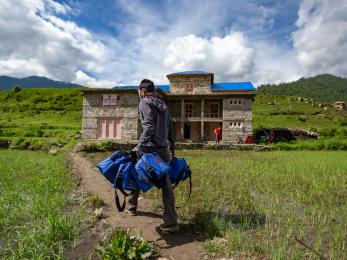How fighting Ebola prepared us to confront COVID-19
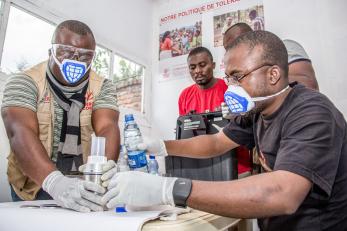
At this moment, all of the more than 40 countries where we have programming have documented COVID-19 cases. As the pandemic spreads rapidly across the planet, we are all still awakening to its brutal effects. For most of the world—especially people fleeing conflict, living in poverty, or without access to safety nets or healthcare—it introduces a new and powerful threat that intensifies existing hardships just as it grows to become the more urgent danger.
Our success in fighting epidemics draws upon two long-held strengths that are cornerstones in many of our programs around the world. The first is our proven ability to provide clean water and sanitation services widely, even in the most challenging conditions. The second is our commitment to collaborative community engagement, which has allowed Mercy Corps to build trust with communities through factual and culturally sensitive awareness campaigns.
Our work with the Ebola epidemic in Liberia in 2014-2015 and more recently in Democratic Republic of Congo (DRC) provides a vivid example of just how critical these two fundamental approaches are to containing disease.
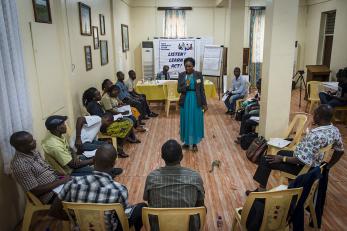
Information and access in Liberia
The 2014-2015 Ebola outbreak in West Africa hit Liberia hard, killed more than 4,800 people, devastated the lives of thousands more, and wreaked havoc on the country’s economy. Grief, fear and panic were widespread.
The outbreak stalled markets and caused many families' livelihoods to suffer. Prevention depended on clean water and proper hygiene, often not available, and curbing its spread was made harder because symptoms did not necessarily appear immediately after exposure. Some mistook it for a different common illness, such as flu or malaria.
During the Ebola epidemic in Liberia, Mercy Corps worked with 77 national and international partner organizations, as well as 15,000 community educators, to reach more than half of the population of the country and help stop the outbreak. The effort reached 2.4 million people in just nine months with life-saving information. Information prioritized the value of hygiene in preventing Ebola, and Mercy Corps provided handwashing stations, access to clean water, and hygiene education to curb the spread of the disease.
On May 9, 2015, the World Health Organization declared the end of the Ebola outbreak in Liberia.
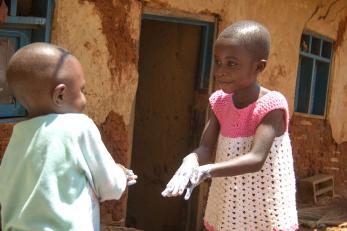
Community trust and preparedness in DRC
Containing the disease in the Democratic Republic of Congo (DRC) presented more challenges than our experience in Liberia. DRC has endured one of the world’s most complex and long-standing humanitarian crises. More than 20 years of conflict and poverty put more than 12.8 million people in need of humanitarian assistance. Decades of weak governance and embattled communities caused people to be wary of outside help. This suspicion made relief efforts even more challenging.
It was clear that a broad, cooperative effort between health and humanitarian organizations was necessary. "An approach that was more attuned to community needs and adapted to the local context was required," says Marcela Ascuntar, a Mercy Corps team member working to help contain the epidemic.
The DRC has made incredible progress and Mercy Corps is there, leading a comprehensive campaign of community and household outreach to prevent and control the spread of infection.
Local community members are asked to weigh-in on what is needed, and are hired to help with construction work, including repairing existing water services and drilling new wells to help improve access to clean water. This not only supports prevention of the disease but also creates an ongoing critical resource for communities while providing badly needed economic support for communities devastated by the disease.
Through the establishment of 40 community centers, people learn about the disease, hygiene practices and prevention measures and disinformation and rumors are dispelled. Accurate details about Ebola come not only from health professionals and international organizations, but from trusted community leaders and members. Eventually the spread of reliable information began to catch up with the disease.
Twenty months after the outbreak the disease has slowed and our teams are hopeful. "We know that Ebola is endemic in this region, so preparedness is key,” says Pauline Schibli, Ebola Programmes Director for Mercy Corps in DRC. “Efforts to reinforce health systems, community access, and public health communication will be crucial to detect, prevent and respond to any future epidemics."
Mercy Corps’ response to COVID-19
With COVID-19, the future epidemic has already arrived, and not just in DRC, but nearly everywhere. Mercy Corps is expanding upon a strong foundation of success fighting Ebola to provide critical support to communities facing the pandemic in the U.S. and globally.
Right now, we are focusing efforts on protecting health, which includes public outreach, clean water and sanitation services. Our teams are on the front lines, meeting immediate needs such as cash distributions to provide families with food, soap and health care. And we’re working to sustain and strengthen economies by supporting small-holder farmers and small businesses through this crisis.
For all of our efforts, we know we must partner with the communities we live and work in for our measures to be successful. We must bring local leaders, entrepreneurs, inventors and other organizations together to build trust and expand our solutions. Our experience fighting epidemics has proven that when we do, we can overcome crises.
